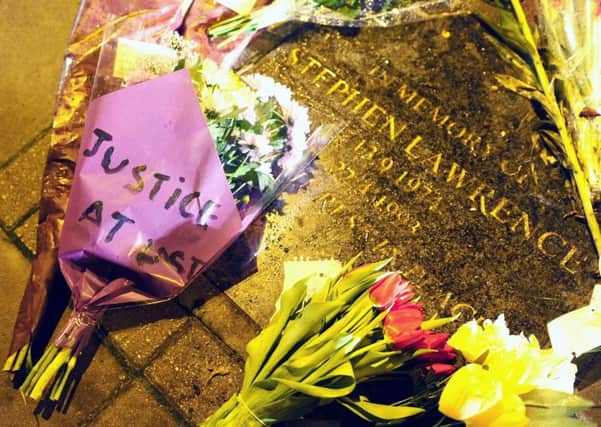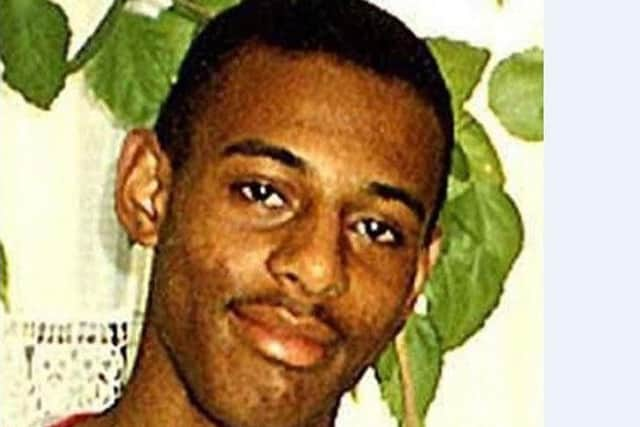John Sentamu: In Stephen Lawrence's memory, we will defy racism


The night before his assassination, Martin Luther King made a speech where he spoke of the death threats, fire-bombings, imprisonment and attacks that he had received for speaking out against racism and segregation in America. He spoke about the bravery and fearlessness that would be required for a change to occur.
He ended that speech by acknowledging that he might not live to see the day but that the day would come. Dr King’s murder the following day brought about a seismic change in America at the time and despite the work that has still to be done the country rightly honours the legacy of Martin Luther King and his example.
Advertisement
Hide AdAdvertisement
Hide AdContrast this with the speech made by Enoch Powell. His words too had a long-lasting impact. The then-Shadow Secretary of State for Defence gave a speech to his regional Conservative association brimming with racial hatred. He spoke of how “in this country in 15 or 20 years’ time the black man will have the whip hand over the white man”. He spoke disparagingly of black children as “charming, wide-grinning piccaninnies”.


As a Member of Parliament and a Privy Counsellor, Enoch Powell brought establishment gravitas but, as a promoter of repatriation and advocate of second-class citizenry to those who were not white, he also opened the floodgates to racism and the denigration of people of colour.
Over the following weeks, months and years many black and Asian people found themselves fearful and frightened, wondering what they had done to deserve such vituperation, wondering where their future might be headed. They found themselves scared and afraid.
Is it any wonder that those convicted of murdering Stephen Lawrence were filmed speaking approvingly of Enoch Powell decades after his speech? Over the past week the BBC has aired a three-part documentary Stephen: A Murder that Changed a Nation. The documentary told the story of Stephen’s death on the night of April 22 and the unfolding story over the hours and days that followed as well as examining the legacy of that night on Stephen’s family, his friends, the police and the country.
Advertisement
Hide AdAdvertisement
Hide AdOne of the accounts of those who were there on that night which didn’t make it into the documentary was that of Conor and Louise Taaffe, who were returning from a prayer meeting at their local Roman Catholic church and were walking home along Well Hall Road in Eltham, South London.


In their evidence to the Stephen Lawrence Inquiry which reviewed the events around Stephen’s murder, Mr Taaffe said that the couple saw Stephen – who had moments earlier been set upon and stabbed – stumble, clutch his body and collapse to the ground. Mr Taaffe said that his wife told him: “Conor, this is serious.”
“I saw blood on the ground,” Mr Taaffe said. “It was thick, congealed blood, quite a lot of it. I was praying in a whisper: ‘Bless him Lord Jesus, keep him Lord Jesus, have mercy on him’.”
Mr Taaffe described how Louise knelt down beside Stephen, held his head in her hands and spoke into his ear, telling him: “You are loved, you are loved.”
Those were probably the last words Stephen heard.
Advertisement
Hide AdAdvertisement
Hide AdIt is tempting – at first sight – to argue that Louise Taaffe’s words bore no truth. How could it be anything more than the cruellest of taunts to even speak of love to that young, gifted 18-year-old young man, on his way home to see his mum, who lay dying on the pavement after being brutally attacked for no other reason than being black?
But there was a deep truth in Louise Taaffe’s words. The actions of Stephen’s parents Doreen and Neville, who have campaigned tirelessly over decades for justice for their son, has demonstrated just how much he was loved.
In an interview last week Neville Lawrence spoke about his decision to forgive those who had killed his son. He also said that the decision was the hardest one he would ever make and was inspired by his faith. He plans to spend the anniversary in church.
In the Christian calendar we are still in the season of Easter where we declare that the resurrection of Jesus Christ means death no longer has the final word. The final word is that we are loved. The legacy of the 25 years that have passed since that night in South London bears testament to that through the actions of Doreen and Neville Lawrence, whose love for their son has led them to campaign tirelessly for justice.
Advertisement
Hide AdAdvertisement
Hide AdHad he lived, Stephen’s desire to be an architect may have led to him building and creating incredible and breathtaking built-up environments. His legacy is that the institutional racism which so hampered the investigation into his murder and prevented every one, and not only some, of those who were responsible from being called to account, can no longer hide away.
Racism in all its forms of wickedness must continue to be challenged and eradicated in Stephen’s name and for the sake of us all. His spilt blood on Well Hall Road in Eltham is for ever crying to Heaven for justice for all. It was a great honour to serve on his inquiry.
Twenty-five years on may he Rest in Peace and Rise in Glory.
Dr John Sentamu is the Archbishop of York.